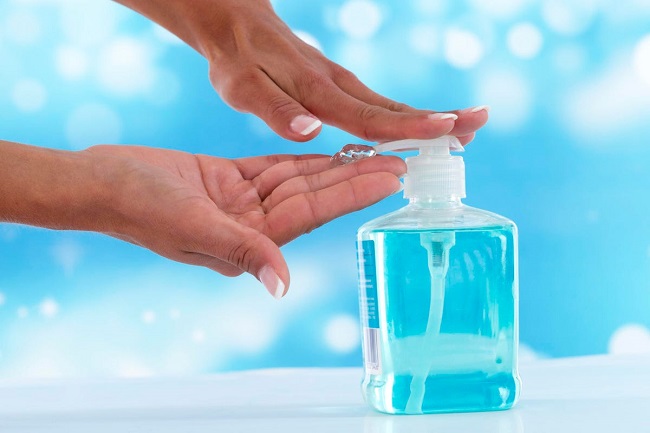Those of you in the Pittsburgh, Pennsylvania area on this date in 2020: Does your ethanol-based hand sanitizer stink? Expert perfumers here at Firmenich have concocted a multitude of additives to help neutralise unpleasant smells.
The odour of ethanol is mitigated by the ingredients our team devised, and the resulting hand sanitizer nevertheless has a refreshing, clean aroma. Since the scent of ethanol varies from bottle to bottle and depends on its natural origin, we went one step further and developed a range of fragrances to be added to the solutions.

How to Stop the Epidemic of Bad Hand Hygiene
The coronavirus epidemic that has swept the United States has, like many disasters, revealed the best and worst in people. Sales of hand sanitizers soared by more than 400 percent in the first week of March, according to data measuring firm Nielsen. This is because consumers hurry to stock up on hand sanitizers and hoard supply until governed differently by vendors.
Off-putting price gouging practises emerged alongside this surge in popularity. (One firm, who shall remain nameless, advertised the sale of a single bottle of hand sanitizer on Amazon for more than $100!)
The Federal Drug Administration (FDA) has exempted dozens of regulations to encourage manufacture of critical medical supplies to battle Covid-19. This is to ensure that shortages are kept to a minimum. Coronavirus tests, ventilators, gloves, and hand sanitizers are all part of this kit.
Alcohol Used in Medication or Food Production
According to the most up-to-date FDA requirements, all alcohol used in medication or food production must be compliant with federal or international standards.
In response to a severe shortage of isopropyl alcohol, a colourless, flammable chemical molecule commonly used in hand sanitizers and other topical skin preparations, producers have been compelled to turn to ethanol as a replacement. Isopropyl alcohol, originally developed in 1920 by chemists at the Standard Oil Company of New Jersey, was the first commercially available synthetic alcohol.
Manufacturers of hand sanitizers, or those converting to sanitizer production, have been obliged to create their own “lemonade” out of any other “lemons” that may be lying around due to the severe shortage. This has led many to switch to making hand sanitizer with ethanol instead of water.
What’s the Best Way to Deal with This?
In order to ensure that your ethanol-based hand sanitizers are preferred by consumers and that they sell well, our master perfumers and odour control experts have developed a number of solutions that effectively battle aromas present in ethanol-based hand sanitizers. If you want your brand of disinfectant to convey an image of cleanliness rather than filthiness, we offer a wide variety of fragranced additive options that work with a variety of natural ethanol production methods.
These modern additives for controlling odours are derived from the same plants that are used to make ethanol, such as maize, sorghum, barley, sugar cane, and sugar beets, therefore they significantly cut down on the unpleasant smells that otherwise would have accompanied their processing. As well as being produced from maize cobs and stocks, rice straw, sawdust, and wood chips, ethanol can be derived from other plant matter.
Last Words
It’s possible for hand sanitizer manufacturers to use ethanol in their products, as Bryan Zlotnik highlighted. Our perfumers simply need a small sample to perform an in-depth analysis of the product, determine the best course of action, and rapidly provide multiple possibilities for a scented odour control solution that is tailored to a given brand. This new addition might not be a silver bullet, but it will help stop the spread of the deadly virus.


















